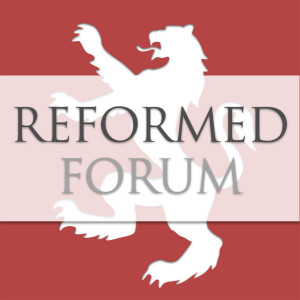
The first paragraph of chapter twenty-nine in the Westminster Confession of Faith sets forth the institution of Lord’s Supper and the uses and ends for which it is designed:
Our Lord Jesus, in the night wherein he was betrayed, instituted the sacrament of his body and blood, called the Lord’s Supper, to be observed in his church, unto the end of the world, for the perpetual remembrance of the sacrifice of himself in his death; the sealing all benefits thereof unto true believers, their spiritual nourishment and growth in him, their further engagement in and to all duties which they owe unto him; and, to be a bond and pledge of their communion with him, and with each other, as members of his mystical body.
In this episode, we discuss the five purposes of the Lord's Supper detailed in the confession:
Christ instituted the Lord’s Supper as a commemorative ordinance for the perpetual remembrance of the sacrifice of himself in his death. The Lord’s Supper is a confirmatory sign (cf. Rom. 4:11) for the purpose of sealing all the benefits procured by Christ’s death unto true believers. Christ instituted the Lord’s Supper for the spiritual nourishment and growth of believers in him. Christ instituted the Lord’s Supper for believers for their further engagement in and to all duties which they owe unto him. Finally, Christ instituted the Lord’s Supper to be a bond and pledge of believers’ communion with him, and with each other, as members of his mystical body.More Episodes
Create your
podcast in
minutes
- Full-featured podcast site
- Unlimited storage and bandwidth
- Comprehensive podcast stats
- Distribute to Apple Podcasts, Spotify, and more
- Make money with your podcast
It is Free
- Privacy Policy
- Cookie Policy
- Terms of Use
- Consent Preferences
- Copyright © 2015-2024 Podbean.com





